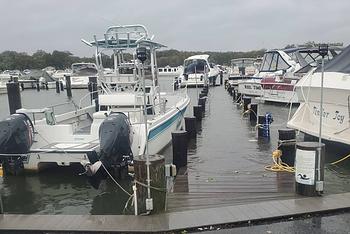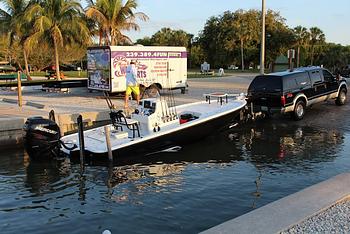In today’s connected world, it’s not unthinkable that with the right infrastructure in place, you can work at any time, from anywhere - including the high seas!
Here are 10 top tips for doing business from your boat:
1. Waterproof your devices
If you’re planning on working on water, it’s a good idea to invest in waterproofing for your devices. Buy electronics that are waterproofed by design and invest in good-quality covers and carriers.
2. You can never have too many batteries
Get long-life batteries for your devices and invest in a powerful power bank to recharge them. It’s also worth making sure that you have spare long-life batteries on board so that you can switch to new batteries when the batteries you are using run flat. You can also prolong your device’s battery life by switching to a mode that saves power.
3. Take your business to the cloud
Cloud computing is key to your making your mobile office work. Using applications and software that doesn’t rely on on-premise servers and connections, such as:
Dropbox
Google Apps
Slack
Salesforce
Evernote
Office 365
Trello
Skype
Xero
As the name implies, Voice over Internet Protocol (VoIP) technology uses an internet connection instead of a traditional landline, converting sound waves into digital data that then travel to the receiver. This means that you can call anywhere, from anywhere, as long as you have an internet connection.
4. Set up your e-signature
Don’t limit yourself to pen and paper - software these days allow you to create an e-signature so that you can ‘sign’ documents from anywhere with an internet connection.
5. Get vocal
Go hands-free with dictation and voice recognition technology. Reports and emails can be read to you while you’re at sea, voice commands can control your computer, and today’s dictation services can easily transcribe your speech.
6. Secure your information
Never mind the dangers in the sea - phishing, whaling, and other cyber crimes pose a real threat to online business functions. It’s important to ensure that your service providers and cloud-based tools have a track record showing that they keep your information safe.
7. Take advantage of tax deductions
As it will be functioning as your mobile office, you may be able to claim some of your boat expenses as tax deductions.
Keep records of:
Client names
Locations and dates
The costs of fuel, food, drinks, mooring fees
8. Be sure to insure
Remember to look into insurance, licensing and regulatory matters if you plan on taking your business on board. For example, your recreational boat insurance may not cover any liability if, say, a client slips and falls on the way to an onboard meeting.
9. Set up systems for success
Systemise your processes so that you can organise your team and functions. Set up effective reporting systems so that work can be tracked and monitored regardless of time zones.
All systems and processes should be online so that any team member can be anywhere and access cloud-based internal operations. Think cloud, think paperless, think working from the water!
10. Stay connected
Internet access on board is a necessity. However, consistent connection while on the water can be affected by dead zones and slow speeds. Here are the options for onboard internet:
WiFi
Many marinas today have mobile WiFi, which is typically fast and low cost (or even free). The problem with WiFi connections is that they have range limitations, meaning that you’ll often have to take a trip closer to the shore to get a reliable connection. A WiFi range extender such as a smart booster antenna or WiFi antenna and smart box can help you to connect over longer distances.
Mobile and cellular data
You can also use your mobile data to ‘hotspot’ your other devices. Use your existing phone plan (or upgrade for a higher data allowance), and you should get decent internet speed. Out at sea, however, you may encounter ‘dead spots’. To maintain your connection in dead zones, you may need additional equipment such a signal booster.
Bonded internet connection
A bonded internet connection is like the automatic ‘cherry-picker’ of the internet realm, combining several different internet connections from different providers to create a faster connection.
Connections can be comprised of:
3G/4G
WiFi hotspot
shore DSL links.
Satellite internet
A satellite system is the best way to get coverage for high-bandwidth offshore internet, but it’s also expensive. You’ll have to pay for equipment costs and high data costs.
To conduct business on a boat, you’ll likely need a combination of connections to lower the risk of lost transmissions. Combining mobile data, satellite, and other connection avenues can increase provide failover methods and increase download speeds.
Business on board float your boat?
With the right equipment, plan and systems, you can can create an effective mobile office environment on your vessel. Who said you can’t mix business and pleasure?
Author Bio:
Smarter Business is one of the UK’s leading independent consultancies, helping businesses secure the most comprehensive savings solutions from utilities contract management and procurement to business loans and facilities maintenance.



